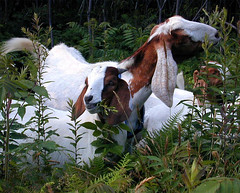Hypertension is the term used to describe high blood pressure.Blood pressure is a measurement of the force against the walls of your arteries as the heart pumps blood through the body.Blood pressure readings are measured in millimeters of mercury (mmHg) and usually given as two numbers -- for example, 120 over 80 (written as 120/80 mmHg). One or both of these numbers can be too high.
Many factors can affect blood pressure, including:
How much water and salt you have in your body
The condition of your kidneys, nervous system, or blood vessels
The levels of different body hormones
You are more likely to be told your blood pressure is too high as you get older. This is because your blood vessels become stiffer as you age. When that happens, your blood pressure goes up. High blood pressure increases your chance of having a stroke, heart attack, heart failure, kidney disease, and early death.
You have a higher risk of high blood pressure if you;
Are obese
Are often stressed or anxious
Eat too much salt in your diet
Have a family history of high blood pressure
Have diabetes
- Smoke
High cholesterol accelerates the progression of atherosclerosis, that is thought to contribute significantly to hypertension.
One example of this is atherosclerosis of the renal artery (called renovascular disease). In this disease, the renal artery becomes narrowed (or stenotic), meaning that the kidneys receive less blood flow. The kidney senses this decrease in flow and triggers a compensatory system to respond. The system heavily involves the so-called renin-angiotensin-aldosterone system, which works through a variety of hormones to raise blood pressure in order to increase flow to the kidneys. The increase in blood pressure necessary to return kidney blood flow to normal is often much greater than normal blood pressure; consequently these patients develop hypertension.
Differences of Sheep and Goat
Sheep
Sheep (Ovis Aries)
- 54 chromosomes.
- Tail hangs down, often docked (short) for health and sanitary reasons.
- Grazers- eat short, tender grasses and clover. Graze close to soil surface.
- Stronger flocking instinct and become very agitated if they separate from the rest of the flock.
- Grow wool and need to shaved annually.
- Have an upper lip that is divided by a distinct philtrum (groove).
- Have mane
- Have face or tear glands beneath eyes and foot or scent glands between the toes.
- Sexually mature rams have less odor.
- Hornless
- In a fight, ram will back up and charge to butt heads
- Says baa..
- Need less copper in diet. If exceed cause toxicity, depends on the molybednum and copper
- Sheep milk contain high fat content.
- Tend to grow faster than goat
- More likely to have worms (strongles)
- Less susceptible to certain ectoparasite.
- Estrus cycle: 17 days
- Gestation period: 145 days
- Deposited external fat before deposited internal fat

- 60 chromosomes
- Tail goes up (unless sick, frightened, distress)
- Natural browsers- eat leaves, twings, vines, shrubs
- Curious and independent
- Seek shelter more readily and hate to get wet
- In a fight, a goat will rear up his hind legs and come down forceably to butt heads
- Hair coat.
- Have glands beneath their tail.
- Develop distinct odor as the mature sexually.
- Have horns
- Have beards
- Says maa..
- Low fat contain in milk
- More likely to have coccidia
- Easy to do AI
- Deposit internal fat first
- Need more copper n their diet
- Dominate over sheep
- Estrus: 18-23 days
- Gestation: 150 days





















0 comments:
Post a Comment